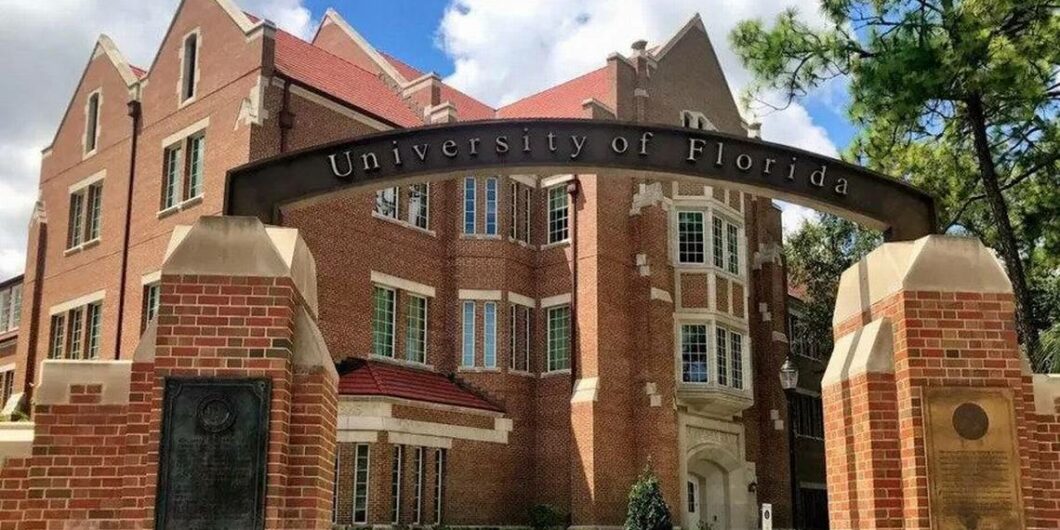Sometimes diversity is our strength, but more often it isn't.
No Half-Measures on Higher-Ed Reform
Editor’s Note: This is part of Law & Liberty‘s series of Faultline Essays, in which we publish different perspectives on a topic, allowing authors an opportunity to read and respond to one another before publishing the essays together.
Education has become perhaps the most hotly contested arena in American politics, and there’s good reason for that. America is now in the midst of regime politics—two divergent ideas of how the country ought to be constituted are in an epic clash for primacy, which is the source of our current polarization. So naturally, schools are drawn in. All regimes have reigning sets of beliefs, and schools and universities are where this worldview is transmitted to the next generation. Thus, education is the new battlefield.
That school is where worldviews are taught is a reality from which neither side should shrink. Only then can we have a proper and informed debate. Both political sides, however, feign to some degree the belief that schools ought to be value-neutral.
Leftists practice dissimulation. They do not acknowledge that they are teaching an ideology, but insist they merely want to promote “evidence-based” ideas. But conservatives, too, are often less than forthcoming, preferring to pretend that what they seek is a level-playing field where all ideas compete for the young minds of university students.
Conservatives who truly believe that all that is required is either a value-neutral university, or one where all ideas are allowed to compete (many, one suspects) should be disabused of this notion. Schools, whether K-12 or in higher education, are where society gets to pass on its culture, habits, mores, and collective memory. It is not a tabula rasa, nor should it be.
This is not an argument for making the university a prime political theater of war. Horace Mann warned us against that when he wrote, “It is obvious… that if the tempest of political strife were to be let loose upon our Common Schools, they would be overwhelmed with sudden ruin.” But this is an argument for winning political battles in the court of public opinion, then at the ballot box, and, then, forcing through policy that supports instructing Americans on their cultural legacy. Wherever victory is not complete, conservatives should strive for the educational compromise that is most favorable to their view. In deeply blue states—for this will be a state-by-state battle, with little room for federal involvement—conservatives must undertake a long-term strategy of educating the public at large, and changing the climate of opinion.
It would clarify matters to describe briefly the two points of view caught in today’s war of ideas. Conservatives want to conserve the essence of American life, or at least most of the status quo ante what the New York Times columnist Bret Stephens has called
the great American cultural revolution of the 2010s, in which traditional practices and beliefs—regarding same-sex marriage, sex-segregated bathrooms, personal pronouns, meritocratic ideals, race-blind rules, reverence for patriotic symbols, the rules of romance, the presumption of innocence and the distinction between equality of opportunity and outcome—became, more and more, not just passé, but taboo.
Leftists profess, and we must take them at their word, that the essence of American life that conservatives want to conserve is oppressive to those they refer to as “the marginalized.” America’s traditional worldview, or as the Left often puts it, its “hegemonic narrative,” supports white supremacy and the patriarchy. Thus, because America is systemically racist, the system itself must be dismantled.
Conservatives obviously disagree and contend that, while there are certainly racists, as in all societies, America is not systemically racist nor in need of systemic change. They, therefore, want to reverse the changes Stephens spoke of, especially in education, and reintroduce the teaching of the classics and of civics, understood to be the corpus of American beliefs, including a deep understanding of how to be a good and engaged citizen by working through the political process at all levels.
But they can’t do it by being relativists, that is, by accepting that there are “several truths” to be debated in the open marketplace of ideas, at least not if they want to remain true to their tradition. This is because another feature of American conservatism is that it believes that the American system is grounded in natural law, on immutable truth. No other country, not even America’s closest allies, derives its legitimacy from natural law and natural rights as much as America.
Conservatives must then understand what one of the 20th century’s most preeminent scholars of conservative thought, Willmoore Kendall, said in 1963: “Societies … cherish a whole series of goods—among others, their own self-preservation, the living of the truth they believe themselves to embody already, and the communication of the truth, (pretty much intact, moreover) to future generations.” That is the quintessence of conservatism, and why education is of such import.
Teaching the foundations of American and Western civilization can be done without crossing the constitutionally banned line against compelling speech. Nor does it mean that other rival theories—even something as anathema to the American system as Marxism—cannot be taught at the university level. As Thomas Jefferson wrote, “Truth is great and will prevail if left to herself, that she is the proper and sufficient antagonist to error, and has nothing to fear from the conflict.”
As it happens, Kendall also had the perfect description of what the left tries to do with universities: “For he who would destroy a society must first destroy the public truth it conceives itself as embodying.”That is because leftists use education to accelerate “the Great American Cultural Revolution.”
They do this by driving the oppression narrative in the classroom, and discouraging or outright banning opposing speech they oppose as supportive of “white supremacy,” and thus harmful to the marginalized. They also seek to teach “Action Civics,” which is very different from the traditional view of civics, in that it emphasizes all manner of community engagement and street militancy, not just contacting legislators or the bureaucracy.
Finally, the leftists use the introduction of a “Diversity, Equity, and Inclusion” apparatus that involves the hiring of large staffs. My Heritage Foundation colleague Jay Greene writes that promoting DEI has become “a primary function of higher education, with DEI staff making up an average 3.4 positions for every 100 tenured faculty.” Greene and his co-author James D. Paul add that, “Employing dozens of DEI professionals—in the form of chief diversity officers, assistant deans for diversity, and directors for inclusive excellence—may be better understood as jobs programs subsidizing political activism without improving campus climate.” The worst offender was the University of Michigan, with 163 DEI personnel, or 5.8 per 100 members of a faculty that reaches 2,827.
This makes eliminating the DEI bureaucracy not just a legitimate target for state legislative action, but the obvious first step. DEI is the Left’s main instrument at present to drive the oppression narrative, to exclude views that disagree with it, to impose language codes, to make color-conscious decisions at variance with American ideals, to use existing disparities as evidence of the existence of systemic racism, and to discourage measuring success. It is not a coincidence that all the major DEI, or antiracism, trainers, have expressed Marxist critiques of the American economic system, capitalism.
Legislative Efforts
The state of Florida became the gold standard on this front when Governor Ron DeSantis signed into law a bill, SB 266, banning the state’s public colleges and universities from spending any money on DEI. NPR typically mispresented DEI with a Mom and Apple Pie view: “Many institutions across the U.S. have DEI offices aimed at diversifying staff and to promote inclusivity for faculty and students,” said NPR, as if it were reporting objective truth. But if the traditional definitions of the three words still held true, then nobody would be against DEI. Rather, DEI has become the enforcement mechanism of the Great American Cultural Revolution; the DEI bureaucracy consists of political commissars who enforce the rules of the change, something that is profoundly anti-American and violates the nation’s ideals and principles, as well as the Constitution and actual statute.
But taking on DEI is only the first step, and there are other necessary ones to follow. Florida has not just moved to dismantle the DEI apparatus, but also, positively, to ensure that schools affirm the “living of the truth they believe themselves to embody already” that Kendall wrote about six decades ago, at the dawn of the era when the old verities would come under intense attack. This is also a proper use of the state’s legislative powers.
This effort has begun with the New College of Florida, a small public liberal arts university in Sarasota. Gov. DeSantis appointed a new, conservative, Board of Trustees on January 6, 2023, and within two months they had abolished the DEI office and fired the university president. Most importantly, the same bill that bars the use of money for DEI also attempts to return Florida to a classical path. The governor and the legislature clearly aim to return all Florida schools to the ideas that produced Western Civilization, to wit, Athens, Rome, and Jerusalem. Thus, the aforementioned law included this section:
(1) The Board of Trustees of the University of Florida may use funds as provided in the General Appropriations Act and charitable donations to establish and fund the Hamilton Center for Classical and Civic Education as an academic unit within the University of Florida. The purpose of the center is to support teaching and research concerning the ideas, traditions, and texts that form the foundations of Western and American civilization.
From 2025 forward, the University of Florida will have to report to the governor, the president of the Senate, and the Speaker of the House on progress toward establishing the Hamilton Center. The center’s stated goals are to educate university students in the “core texts and great debates of Western civilization and the Great Books,” and “to satisfy the requirement for the competency in civil discourse.”
Florida has also cleverly moved against two features used by the Left to implement and institutionalize the change it seeks: tenure and accreditation. The tenure system is used by professors to act with impunity. The legislature therefore passed a bill, SB 7044, that makes professors go through a post-tenure review every five years. This, Speaker Chris Sprowls said, “will inject more accountability and enhance performance.” The legislative action on accreditation was also important. The process is often used to, for example, push DEI on universities, which have to show they have set up DEI offices before winning approval from accrediting agencies. So starting in July, the state university system’s Board of Governors and the State Board of Education will have to name new accrediting agencies.
Banning DEI, changing the tenure and accreditations systems, and reintroducing classical learning and great books—this is the conservative Holy Grail, and it was pursued by a governor who just won reelection with a 20-percentage vote margin. This is what conservatives should be aspiring to when in office: win the consent of the governed, and implement policy that will reverse at least some aspects of the Great American Cultural Revolution.
To be sure, Florida is not the only model. Many other states are trying to do the right thing. Georgia’s Lt. Gov. Burt Jones has asked the chancellor of the state’s university system, Sonny Perdue, to do an inventory of all DEI practices in the system’s 26 colleges and universities. Other states are also targeting DEI, though not all recognize the pervasive problem of accreditation monopolies.
As long as the aforementioned line against forcing university students to adhere to a worldview is not crossed—and none of these legislative efforts does that—then Americans can rest assured that what is being done is not just legal but also legitimate. Conservatives have an obligation to promote the preservation and transmission of American traditions through education. It is fair and legitimate to teach that our system is based on the thinking of Aristotle, Cicero, St. Augustine, Aquinas, Madison, etc., and on the transcendent truths of the tablets of Sinai and the Sermon on the Mount. We can, and should, also explain Marxism and teach that it has an unrivaled and sordid record of penury and misery. All living organisms, and American society is one, seek self-preservation.
On Prof. Hankins’ Liberal-Conservative Approach
Prof. Hankins makes some reasonable and needed recommendations for how to fix the left’s domination of the academy. Particularly, his observation that “One important step would be to wrest control of the accreditation process from leftist bureaucracies” is spot on. This is an oft-overlooked area crying out for reform. As Prof. Hankins rightly says, “These bureaucracies have long been dominated by progressives, but more recently have been infested by the more radical, ‘woke’ variety thereof.” States, wherever possible, should introduce competition.
Likewise with Prof. Hankins’s call for approaching reform from a budgetary perspective. As he says, there is a lot of “administrative bloat.” This approach is likely to win support in the all-important court of public opinion. The idea that states should introduce their own testing regimes, which would have an impact on K-12 education is also welcome, as is his support for the new institutes that are reintroducing the classics in university systems across the country.
Prof. Hankins teaches history at Harvard, so one can understand his distaste for our polarizing politics. Indeed, one can agree with his statement that “For hyperpartisans, every boy and every gal is either a little crazy or a little moral monster.” Even those of us who recognize that we are at a crucial moment in America can benefit from understanding the world as the woke left we contend with does. Yes, many of them really have convinced themselves that this country is systemically racist, that our conceptual superstructure is “white supremacy,” and that it acts to oppress the marginalized (though many others know these to be lies but use them nonetheless to implement a transformative agenda that would be more universally rejected without the use of guilt).
But we cannot, in light of this understanding, let them rearrange American life according to this aberrant worldview. When Prof. Hankins writes that hyperpartisans of both sides believe that children “need to yanked out of state indoctrination mills or turned into Anti-Racist Baby,” he is sniffing at reality. The school is where the woke left seeks to deprogram the American mind of the white supremacy of their reveries.
Conservatives who have thought about the matter will understand that, as I said in my essay, the school, along with the family, is an institution where a nation’s culture is transmitted. Prof. Hankins disparages using the political process to fight the academy’s radical monoculture (a very real thing, incidentally; 96 percent of professors’ political donations at Prof. Hankins’ Harvard go to Democrats) as the “authoritarian conservative answer to these questions.”
No, this would be the democratic answer, arrived at after courageous politicians have changed the electorate’s climate of opinion, won elections, and then used the legislative process to craft the necessary remedies. Reasoning, as Prof. Hankins does, that this cannot be done because the professoriate would dig in—or as he puts it, “trying to force faculty members to do anything underestimates our powers of obstruction”—is a mere capitulation to hostage-takers. He might underestimate the power of a new, legislature-appointed board of regents willing to fire people.
One of these must be the elimination of DEI. Prof. Hankins agrees, but does not make this endeavor the central pillar of his proposal. There is no fix to the present problems in the academy without dealing with this problem first.
One last comment. Prof. Hankins would have us emulate the “liberal conservative” approach of the European People’s Party. As someone who travels to Europe every year to speak at conferences, meet with politicians, and visit family members, I can attest to the intellectual vapidity of these parties. Angela Merkel pretty much destroyed the Christian Democratic Union (CDU) she led as chancellor for 16 years, to the point that Germany today lacks a real conservative, Burkean alternative. No, that’s not how we are going to solve America’s problems.



